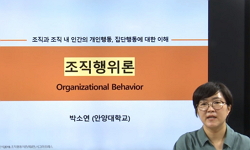직무중심 인사관리는 구성원이 수행하는 직무의 가치와 중요도를 기준으로 채용, 평가, 보상, 교육 등을 실시하는인사관리이며, 이는 직무를 수행하는 사람의 특성(나이, 성별, 학력, 근속년...
http://chineseinput.net/에서 pinyin(병음)방식으로 중국어를 변환할 수 있습니다.
변환된 중국어를 복사하여 사용하시면 됩니다.
- 中文 을 입력하시려면 zhongwen을 입력하시고 space를누르시면됩니다.
- 北京 을 입력하시려면 beijing을 입력하시고 space를 누르시면 됩니다.

HR 부서의 전략적 역할과 외부연결성이 직무중심 인사관리의 도입에 미치는 영향 = The Effects of HR department's Strategic Role and External Connectivity of HR departments on Job-based HR
한글로보기https://www.riss.kr/link?id=A109251508
- 저자
- 발행기관
- 학술지명
- 권호사항
-
발행연도
2024
-
작성언어
Korean
- 주제어
-
등재정보
KCI등재
-
자료형태
학술저널
- 발행기관 URL
-
수록면
1357-1382(26쪽)
- 제공처
-
0
상세조회 -
0
다운로드
부가정보
국문 초록 (Abstract)
이에 본 연구는 한국노동연구원의 사업체패널조사자료를 활용하여 직무중심 인사관리가 기업에 도입되는 데 영향을미치는 요인들, 그 중에서도 특히 HR 부서의 역할에 주목하여, HR 부서의 역량이 직무중심 인사관리에 미치는 영향을살펴보았다. 분석 결과, HR 부서의 전략적 역할과 외부연결성 수준이 높을수록 직무중심 인사관리를 실행할 확률이높고, 이들 관계를 조직혁신과 커뮤니케이션이 긍정적으로 강화하는 조절효과가 있음을 확인하였다. 이 같은 결과는직무중심 인사관리를 시행하고자 하는 기업들은 HR 부서의 전문성을 강화해야 하고, 단순히 인사시스템의 변화 뿐아니라 조직혁신과 조직 내 커뮤니케이션도 활발하게 이루어질 수 있게 해야 한다는 시사점을 제공한다.
직무중심 인사관리는 구성원이 수행하는 직무의 가치와 중요도를 기준으로 채용, 평가, 보상, 교육 등을 실시하는인사관리이며, 이는 직무를 수행하는 사람의 특성(나이, 성별, 학력, 근속년수 등)이 기준이 되는 사람중심 인사관리와는대비되는 개념이다. 우리나라는 전통적으로 사람중심 인사관리를 운용해 왔으나, 최근에는 고직급자의 증가에 따른인건비 부담, 보상에 대한 내・외부 형평성 저하로 인한 낮은 동기부여, 개인과 직무 간의 부적합 등의 문제를 해결하기위한 직무중심 인사관리에 대한 관심이 높아지고 있다. 그러나 직무중심 인사관리를 도입하고 시행하는 데에 어떤요인들이 영향을 미치는지에 대해서는 이론적・실무적 근거가 부족하여 실제 실행이 쉽지 않은 상황이다.
이에 본 연구는 한국노동연구원의 사업체패널조사자료를 활용하여 직무중심 인사관리가 기업에 도입되는 데 영향을미치는 요인들, 그 중에서도 특히 HR 부서의 역할에 주목하여, HR 부서의 역량이 직무중심 인사관리에 미치는 영향을살펴보았다. 분석 결과, HR 부서의 전략적 역할과 외부연결성 수준이 높을수록 직무중심 인사관리를 실행할 확률이높고, 이들 관계를 조직혁신과 커뮤니케이션이 긍정적으로 강화하는 조절효과가 있음을 확인하였다. 이 같은 결과는직무중심 인사관리를 시행하고자 하는 기업들은 HR 부서의 전문성을 강화해야 하고, 단순히 인사시스템의 변화 뿐아니라 조직혁신과 조직 내 커뮤니케이션도 활발하게 이루어질 수 있게 해야 한다는 시사점을 제공한다.
다국어 초록 (Multilingual Abstract)
These findings suggest that companies looking to implement Job-based HR should strengthen their HR department's expertise, and that Job-based HR can be effectively implemented not only by changing the HR systems but also by innovating the organization and promoting communication among members of the organization.
Job-based HR refers to the implementation of human resource management practices that can contribute to organizational performance based on job content and information. This concept contrasts with People-based HR, which is based on the characteristics...
Job-based HR refers to the implementation of human resource management practices that can contribute to organizational performance based on job content and information. This concept contrasts with People-based HR, which is based on the characteristics of the person performing the job. Traditionally, South Korea has operated under a People-based HR system. However, recently, South Korean companies have been attempting to introduce Job-based HR to address the issues of labor cost burden and wage fairness caused by the increase in senior positions. This paper focuses on the factors that influence the introduction of Job-based HR into companies, particularly the role of the HR department, utilizing data from the Korea Labor Institute's business panel survey. The results show that the higher the level of strategic role and external connectivity of the HR department, the greater the probability of implementing Job-based HR. Additionally, organizational innovation and communication positively reinforce these relationships.
These findings suggest that companies looking to implement Job-based HR should strengthen their HR department's expertise, and that Job-based HR can be effectively implemented not only by changing the HR systems but also by innovating the organization and promoting communication among members of the organization.
동일학술지(권/호) 다른 논문
-
외부환경 불확실성과 제휴 집중도가 기업의 제휴 유형 선택에 미치는 영향
- 대한경영학회
- 이정원
- 2024
- KCI등재
-
신제품 개발 프로세스에서 Fuzzy front-end 집중도가 중소기업의 혁신성과에 미치는 영향: 신제품 개발 속도에 따른 차이
- 대한경영학회
- 김수민
- 2024
- KCI등재
-
- 대한경영학회
- 신재근
- 2024
- KCI등재
-
학습민첩성이 창의성에 미치는 영향: 지식공유와 잡크래프팅의 다중 매개효과를 중심으로
- 대한경영학회
- 김현정
- 2024
- KCI등재




 KCI
KCI DBpia
DBpia




